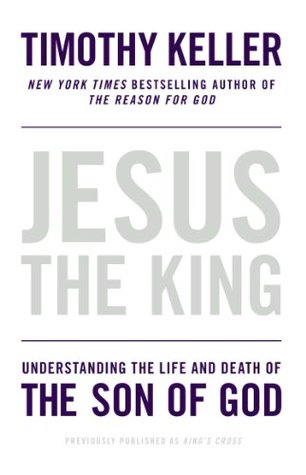More on this book
Community
Kindle Notes & Highlights
Read between
October 6 - November 17, 2019
The chief herald of this message, St. Paul, bluntly proclaims: ‘If Christ has not been raised, your faith is futile.’
It wouldn’t be an exaggeration to say that the subject of Jesus is its own genre, featuring carefully researched biographies, scholarly textual commentaries, historical criticism, speculative fiction, antimythologies, and everything in between.
the whole story of the world—and of how we fit into it—is most clearly understood through a careful, direct look at the story of Jesus.
You’re glorifying something when you find it beautiful for what it is in itself. Its beauty compels you to adore it, to have your imagination captured by it.
The gospel is that God connects to you not on the basis of what you’ve done (or haven’t done) but on the basis of what Jesus has done, in history, for you. And that makes it absolutely different from every other religion or philosophy.
I am reminded of a line from Tolkien’s Lord of the Rings: “The hands of the king are healing hands, and thus shall the rightful king be known.”
When the Bible talks about sin it is not just referring to the bad things we do. It’s not just lying or lust or whatever the case may be—it is ignoring God in the world he has made; it’s rebelling against him by living without reference to him. It’s saying, “I will decide exactly how I live my life.” And Jesus says that is our main problem.
The Bible says that our real problem is that every one of us is building our identity on something besides Jesus.
Almost always when we first go to Jesus saying, “This is my deepest wish,” his response is that we need to go a lot deeper than that.
The penetrating question that Jesus asks them—“Which is easier, to say to the paralytic, ‘Your sins are forgiven,’ or to say, ‘Get up, take up your mat, and walk’?”—has been puzzled over for twenty centuries. Once while preparing a sermon on this text I got out my Anchor Bible Commentary, which is arguably the most thorough, scholarly, and respected set of critical studies of the Bible. And when the commentator arrives at the place in Mark’s Gospel where Jesus poses this question, he says, in essence, “You know, after countless pages written on this, we still have a good question before us.
...more
Here is how historian N. T. Wright puts it: “How can you live with the terrifying thought that the hurricane has become human, that fire has become flesh, that life itself became life and walked in our midst? Christianity either means that, or it means nothing. It is either the most devastating disclosure of the deepest reality of the world, or it is a sham, a nonsense, a bit of deceitful playacting. Most of us, unable to cope with saying either of those things, condemn ourselves to live in the shallow world in between.”


